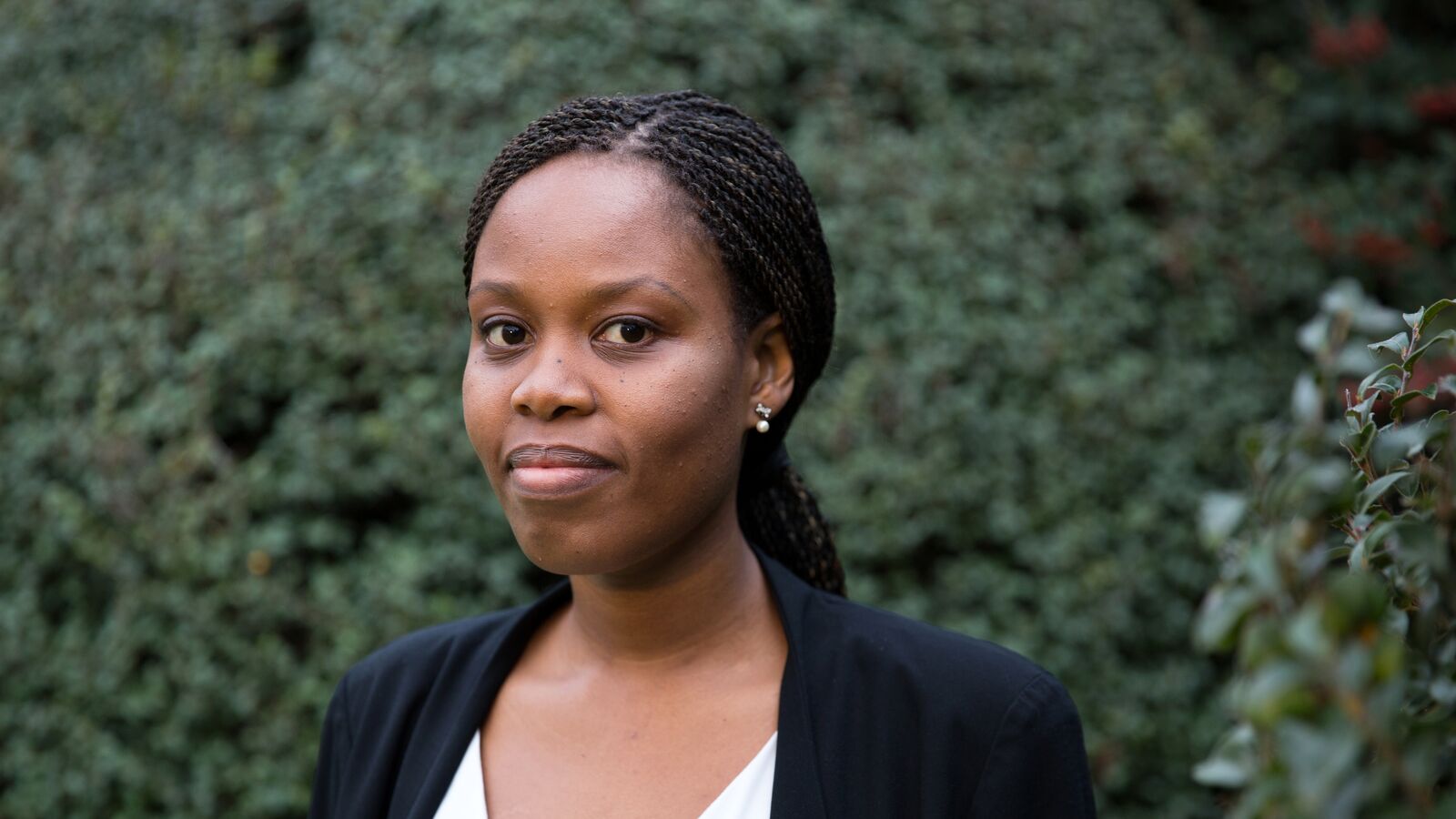When they arrive at university, many of our Dell Young Leaders have never been exposed to life outside of their hometowns. As a result, they feel intense pressure as they navigate university while also realizing their potential as both students and leaders. Through the programme, they complete career and leadership training that helps them acclimate to university, realize they are not alone, and feel prepared to step into the world of work. The journey of a Dell Young Leader is not easy, and it does not stop when our students cross the graduation stage – many in the programme would say that’s just the beginning.
To illustrate this, we recently spoke with Snegugu Vilakazi, who was the very first Dell Young Leader programme graduate when she received her degree in 2012. Today, Snegugu is a qualified chartered accountant. She says the culture she witnessed through Dell Young Leaders is one she looks for in an employer, and one she works to create in her own team – where people know to ask for help and collaboration is celebrated.
Snegugu shared some of her personal programme highlights and advice for other first-generation university students in South Africa.
Tell us about your journey to university.
I knew what I wanted to achieve at the end of my Matric exams, so I had to work effectively from the beginning. I made studying my first priority and used all the resources available to me – books, past exam papers, and assignments.
However, I lacked confidence. I was scared to speak in front of a crowd and froze during oral presentations. But I was motivated by my family. I was raised by parents who didn’t matriculate but were focused on building a life for themselves and their family and started a small business. I remember watching my mother doing the books for the business, and that inspired me to go into the corporate world. Looking back, perks like international travel seemed a lifetime away from my small town in KwaZulu Natal, but I knew the world was bigger than my town.
My goal coming to university was to become a successful chartered accountant and a role model to young, enthusiastic women.
How did the Dell Young Leaders programme impact your university and career experience?
The reality of arriving at university was more challenging than my big dreams let me imagine. I faced the pressure of not embarrassing my parents by returning home without a degree, a feeling of being alone, and barriers of being from a township. I only spoke English as a second language and had been schooled in my home language, IsiZulu. I struggled to make friends and had to adjust to university life and the feeling of being average. At school, everyone knew me and I was top 10 in my district for final school exams results. Now, I was a number and someone who didn’t quite fit. I focused on academics and lived what I would describe as a small university experience.
When I applied for Dell Young Leaders, I didn’t think I’d make it because I lacked confidence, couldn’t express myself in English, and was an introvert. When I got the call that I’d made it into the programme I felt a renewed sense of motivation.
The programme made me realise the importance of giving back to others and I’ve seen the return of investment on my success. As a Dell Young Leader, I became a mentor, started exercising, and joined community development societies. I got to know the other students in the programme, and that grew into my Dell Young Leaders network who still help each other today.
My three younger siblings have studied further after high school and my youngest brother – who was also top 10 in the district for his high school marks – is completing his second year of Medicine at university. I’m happy to have inspired his success and also happy to have a doctor in the family – my mother now has someone new to tell the neighbours about!
Following university, what did you go on to do?
I qualified as a chartered accountant in seven years, which is the minimum required time. Currently, I work with a leading financial services firm based in South Africa and six other African countries. I am in the group reporting team responsible for the financial statements published in the Johannesburg Stock Exchange. I work closely with the CFO, which is quite rare for someone who qualified in my time.
You were one of the first Dell Young Leader graduates. What does that mean to you?
Being one of the first programme graduates created pressure, but it inspired me to do better and be better. Heading into my graduation year I knew it was not just my family looking forward to my success. I was fortunate to have that additional support system of people who believed in me. I had to set an example for all those coming after me and that pushed me to perform at my best.
As an Alumnus, how have you seen the Dell Young Leaders programme impact your peers and current students?
The impact of the programme is priceless. It provides the opportunity to create a network of similar people who have the same background, understand our struggles, but thrive to be more. The programme is creating leaders who are not only competent but thrive to look for solutions that benefit the masses.
What advice do you have for other South African university students?
Students underestimate the amount of time they have at university. Use your free time to start researching your careers and the expectations of the workplace. I asked for feedback from my peers and individuals in industry, which was tremendously helpful.

